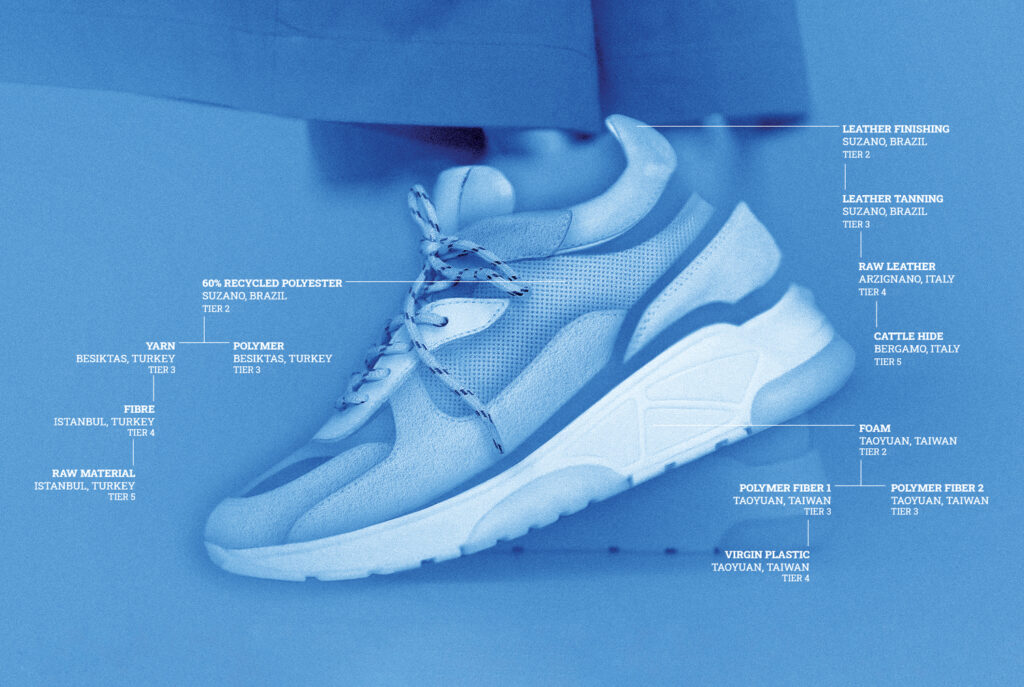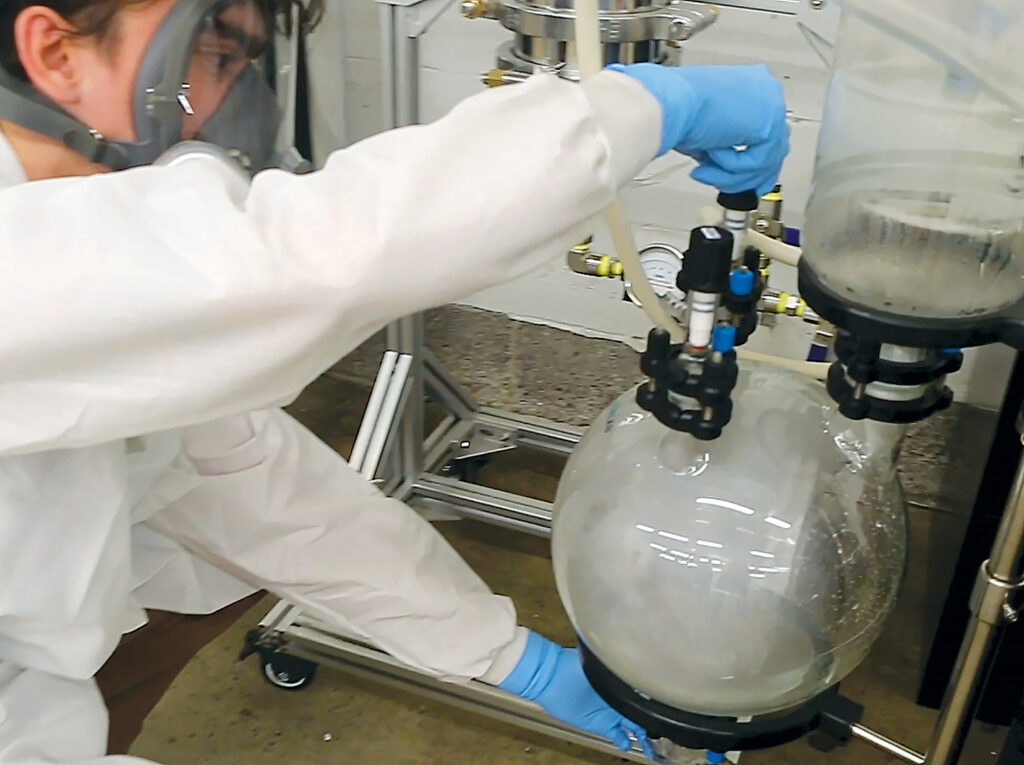
In a world where consumers are concerned about sustainability, being environmentally conscious and seeking ethically sourced products, textile manufacturers need to ensure that companies throughout their supply chain aren’t engaging in misleading or deceptive environmental or sustainability claims, also called greenwashing. New laws may soon require those selling products in California or operating in New York to know more about the companies throughout a product’s entire supply chain than just its closest links.
Understanding the laws
In October 2021, California governor Gavin Newsom signed Truth in Labeling for Recyclable Materials, which prohibits misleading recycling claims on nonrecyclable products and packaging. It goes into effect Jan. 1, 2024.
“It’s part of a concerted effort in California to clamp down on greenwashing in advertising products,” says Will Troutman, a partner in the Los Angeles law firm Norton Rose Fulbright and the head of consumer markets U.S. and co-lead for ESG (environmental, social and corporate governance) and human rights, U.S. “Now we’re waiting for the state to put out guidance that explains what materials are recyclable.”
Then there’s the New York Fashion Sustainability and Social Accountability Act, which is currently under review. It would require apparel and footwear manufacturers and retailers to map their supply chain as well as report on and reveal all the environmental and social impacts of their work. If the act passes, “I think you would see a lot of attention on those [impacts] when the reports are due,” says Troutman. “And companies that aren’t complying would be first, I would think, to be named and shamed.”
Verifying sustainability claims
Even so, Troutman says, currently “on the product level, there’s a ton of litigation about claimed environmental attributes of textiles and apparel,” as well as problems associated with companies’ sustainability reports. “It’s a lot harder to go after somewhat often aspirational comments about a company,” Troutman says. If, for example, a company commits to being carbon neutral by 2024, “how do you prove they’re not trying?” Troutman queries. “And if they don’t make it, how are you proving that they did anything wrong?” That’s more difficult, he says, than when a company claims that clothing is free of a particular chemical and then when tested, that chemical is discovered.
Curran Hughes, president of Renegade Plastics based in Green Bay, Wis., whose company sells sustainable alternatives to PVC-coated fabrics, agrees. “It is very easy to claim some aspect of sustainability for a product or a business practice,” he says. “The hard part is deploying sustainability initiatives with tangible impacts.” He cites a company whose marketing touted its reduced CO2 emissions, but those reductions were actually because of reduced idle times for trucks picking up orders after the company deployed a new warehouse management system. “While every reduction in CO2 emissions counts,” he says, “this impact was not due to any true deliberate change in operations, like switching from propane to electric forklifts.”

Shameek Ghosh, CEO and co-founder of TrusTrace, a supply chain traceability platform based in Stockholm, Sweden, says TrusTrace operates on the notion that companies want to be socially and environmentally responsible, “but until now, doing so has been extremely difficult. Corporations are not measured on social or environmental metrics, making it extremely challenging to drive an agenda that supports these responsibility efforts. Brands need to know their suppliers, their credentials, their processes, material and origin.”
“A company’s success hinges on consumer trust,” says Will Hutchinson, director of supply chain at Claros Technologies Inc. in Minneapolis, Minn. Claros develops sustainable materials and solutions and is committed to removing per- and polyfluoroalkyl substances (PFAS) from the environment. “Greenwashing can erode this trust, leading to negative perceptions and potential backlash. Conversely, showcasing genuine sustainability efforts establishes a foundation of trust, fostering long-term customer relationships and positive brand associations.”
Ensuring compliance
Ghosh says efforts to avoid greenwashing and improve the impact of a company’s supply chain should be rooted in data. “Greenwashing happens when there is no solid data to back up the claims made, even if the claims are made with good intentions,” he says. “Companies need to map their suppliers, understand the working conditions and processes at each facility, get audits and assessments from them and have this data readily available. Equally important is having this information down to the style, purchase order and shipment, as the supply chain is constantly evolving.”
Hutchinson agrees. “This [type of] transparency allows you to track the origin of materials, energy usage, waste management and other environmental metrics,” he says. “Whenever possible, structure your plans around sustainability rather than striving to become sustainable. It’s considerably easier to work with suppliers who already demonstrate effective sustainability practices than trying to get an existing supplier to make costly investments.”
That’s exactly what Renegade does, says Hughes. It works only with those that have the same sustainability missions and principles as Renegade. “It is understood that as partners, transparency is key to trust. Therefore, to coordinate on product quality and development, we routinely visit our suppliers and frequently communicate with them.”
He adds that when suppliers claim a sustainability benefit, they should be challenged. “A sustainability claim should be simple and clear enough that any employee in the organization can explain it. If the claim relies on complex schemes like derivative carbon offset trading, then the company may not actually be changing their behavior to be more sustainable.”
And when it comes to certifications and testing, Hutchinson says it’s important to seek out suppliers that have obtained reputable environmental certifications such as ISO 14001 (environmental management systems) or specific industry-related certifications. “These certifications often involve rigorous assessments of environmental practices,” he explains.

Taking small steps
Of course, not all businesses, especially smaller ones, have the resources needed to take a chance on new materials, suppliers or processes. “However, small companies are nimble and can make decisions quickly to better meet their customers’ needs,” says Hughes.
He recommends small businesses start by making one product sustainable for customers that prioritize sustainability. However, he adds, they also need to communicate to their customers “that this is something new and that it will require cooperation to get it right.”
Collaboration is absolutely the way to go, says Ghosh. “Oftentimes, small businesses have less complex supply chains and have good relations with their suppliers, as they have had to build strong bonds based on relationships rather than economic clout. We’ve also seen small businesses being more open and willing to collaborate with each other, forming cohorts to collaborate
on challenges like this or through industry organizations.”
The industry understands that environmental sustainability is essential for a business’s long-term viability, but Hughes notes that achieving that sustainability and avoiding greenwashing “is a multiyear endeavor. Because it takes time, it’s easy to get distracted with quick wins like off-the-shelf carbon offsets rather than meaningful changes in materials and processes. Start by focusing on things that are under your control and asking questions up and down the supply chain. Companies are often doing something unsustainable because no one has ever asked if it could be done differently.”
At the end of the day, says Hughes, “the only way to fight greenwashing and actually have real change is by building a company that’s committed to it.”
Kelly Hartog is a freelance journalist in Los Angeles, Calif.
 TEXTILES.ORG
TEXTILES.ORG


